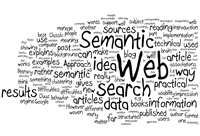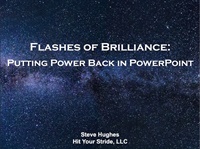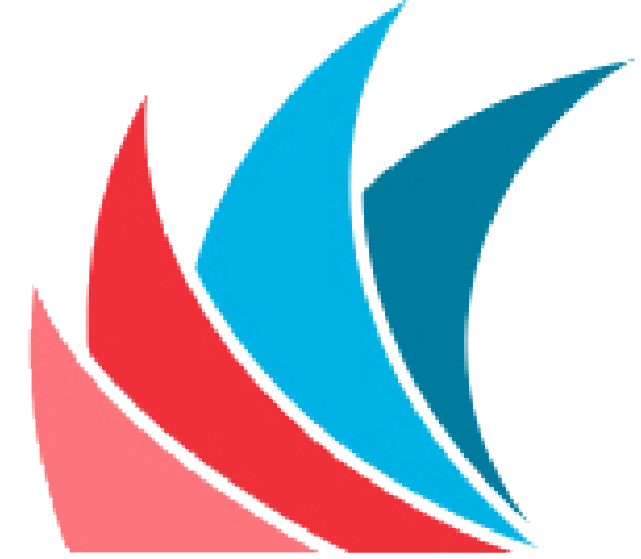
- Faculty:
- Jennifer Ellis, Esq.
- Duration:
- 1:04
- Format:
- Audio and Video
- Short Description:
- Are you curious about how artificial intelligence can revolutionize the way your law firm operates? While there has been extensive theoretical discussion about AI, this seminar offers a unique opportunity to witness its practical applications firsthand. Join us for "A Day in the Life: Practical Examples of Artificial Intelligence in Law Firms," a continuing legal education seminar where

- Faculty:
- Daniel J. Siegel, Esq.
- Duration:
- 1 Hour 1 Minutes
- Format:
- Audio and Video
- Short Description:
- This program will highlight the newest features of Adobe Acrobat Pro while also demonstrating some of the features that make it a must-have for every law firm.

- Faculty:
- Roger J. Dodd, Esq.
- Duration:
- 1 Hour 13 Minutes
- Format:
- Audio and Video
- Short Description:
- In this third installment of this four-part series of four 75-minute webinars, Roger Dodd presents a completely integrated cross-examination system, with an emphasis on conducting cross-examination over Zoom, taught via learnable concrete principles. In each webinar Roger illustrates key principles and techniques of cross-examination to implement at trial and at depositions (in-person or online). His examples are based on dozens of real-life examples. Even if you don’t take the whole series, you will immediately be able to put to use important cross examination skills that Roger shares.

- Faculty:
- Roger J. Dodd, Esq.
- Duration:
- 1:15
- Format:
- Audio and Video
- Short Description:
- In this fourth installment of this four-part series of four 75-minute webinars, Roger Dodd presents a completely integrated cross-examination system, with an emphasis on conducting cross-examination over Zoom, taught via learnable concrete principles. In each webinar Roger illustrates key principles and techniques of cross-examination to implement at trial and at depositions (in-person or online). His examples are based on dozens of real-life examples. Even if you don’t take the whole series, you will immediately be able to put to use important cross examination skills that Roger shares.

- Faculty:
- Roger J. Dodd, Esq.
- Duration:
- 1:15
- Format:
- Audio and Video
- Short Description:
- In this first installment of a a series of four 75-minute webinars, Roger Dodd presents a completely integrated cross-examination system, with an emphasis on conducting cross-examination over Zoom, taught via learnable concrete principles. In each webinar Roger illustrates key principles and techniques of cross-examination to implement at trial and at depositions (in-person or online). His examples are based on dozens of real-life examples. Even if you don’t take the whole series, you will immediately be able to put to use important cross examination skills that Roger shares.

- Faculty:
- Roger J. Dodd, Esq. | Charles "Chuck" Rathburn
- Duration:
- 1 Hour 12 Minutes
- Format:
- Audio and Video
- Short Description:
- In this second installment of this four-part series of four 75-minute webinars, Roger Dodd presents a completely integrated cross-examination system, with an emphasis on conducting cross-examination over Zoom, taught via learnable concrete principles. In each webinar Roger illustrates key principles and techniques of cross-examination to implement at trial and at depositions (in-person or online). His examples are based on dozens of real-life examples. Even if you don’t take the whole series, you will immediately be able to put to use important cross examination skills that Roger shares.

- Author:
- Daniel J. Siegel, Esq.
- Publication Date:
- Dec 07, 2013
- Short Description:
- Lawyers are already using Android devices to make phone calls, check e-mail, and send text messages. After the addition of several key apps, Android smartphones or tablets can also help run a law practice. From the more than 800,000 apps currently available, Android Apps in One Hour for Lawyers highlights the “best of the best” apps that will allow you to practice law from your mobile

- Faculty:
- Jennifer Ellis, Esq.
- Duration:
- 1:04
- Format:
- Audio and Video
- Short Description:
- AI (Artificial Intelligence) is not just the hot new thing. It is changing the way lawyers practice. Join us and learn about the legal, ethical, and practical issues you need to know.

- Faculty:
- Jennifer Ellis, Esq.
- Duration:
- 00:52
- Format:
- Audio and Video
- Short Description:
- The Coronavirus pandemic has forced many attorneys to work from home. While some may have been prepared for the shift to working remotely fulltime, others are considering the notion of working outside of their traditional office space for the first time. In this free program, attorney Jennifer Ellis reviews some of the basic office functions attorneys need to replicate...

- Faculty:
- Jeffrey R. Schoenberger, Esq.
- Duration:
- 1 Hour 4 Minutes
- Format:
- Audio and Video
- Short Description:
- Legal technology is a double-edged sword; it can cause malpractice, or it can guard against it! Most of the top causes for malpractice and grievance issues are related to organization, communication, and law office management. As such, they are largely preventable. How do you properly communicate confidential information with clients? How do you properly negotiate documents with opposing counsel?

- Faculty:
- Lawrence Eichen, Esq.
- Duration:
- 1:02
- Format:
- Audio and Video
- Short Description:
- This course provides an overview of artificial intelligence and the features of ChatGPT. It discusses how attorneys can use ChatGPT and other AI platforms to assist with client intake, document review, research, drafting, editing, and brainstorming like never before.

- Faculty:
- Lawrence Eichen, Esq.
- Duration:
- 1:02
- Format:
- Audio and Video
- Short Description:
- This course provides an overview of artificial intelligence and the features of ChatGPT. It discusses how attorneys can use ChatGPT and other AI platforms to assist with client intake, document review, research, drafting, editing, and brainstorming like never before.
Fri, Mar 13, 2026 - 10:00 AM to 11:02 AM PDT

- Faculty:
- Mark Rosch | Carole Levitt
- Duration:
- 1:00
- Short Description:
- More and more attorneys and judges are using social media, either for its intended purpose of social networking (and, for the lesser intended purpose of marketing) or for its unintended purpose of investigative research. There has been much discussion online amongst legal experts about what sorts of investigative activity is ethical for lawyers to engage in. Most Bar Associations however, have not yet addressed this topic. Two exceptions are the Philadelphia Bar and the New York State Bar.

- Faculty:
- Roger J. Dodd, Esq.
- Duration:
- 1 Hour 29 Minutes
- Format:
- Audio and Video
- Short Description:
- In a series of four 90-minute webinars, Roger Dodd presents a completely integrated cross-examination system taught via learnable concrete principles. In each webinar Roger illustrates key principles and techniques of cross-examination to implement at trial and at depositions (in-person or online). His examples are based on dozens of real-life examples. Even if you don’t take the whole series...

- Faculty:
- Jeffrey R. Schoenberger, Esq.
- Duration:
- 1 Hour 3 Minutes
- Format:
- Audio and Video
- Short Description:
- Law and medicine were always the pair: well-respected professions, pathways to middle class (or better!) comfort, and laggards with technology. Whether you went to a doctor’s office or a lawyer’s office, paper ruled the day. But that’s changing. One of the last bastions of “paper is king” is the executed document – “wet” signatures serving as proof ...

- Faculty:
- Tom O'Connor, Esq.
- Duration:
- 1 Hour 4 Minutes
- Format:
- Audio and Video
- Short Description:
- Most attorneys in private practice are employed by law firms with fewer than 20 lawyers and, in fact, half of all U.S lawyers in private practice are solos. When e-discovery came on the scene, these attorneys viewed it as the exclusive domain of large firms with large cases in Federal court. But with the increase in digital activity by people in all areas of their lives, e-discovery has become an

- Faculty:
- Tom O'Connor, Esq.
- Duration:
- 1 Hour
- Format:
- Audio and Video
- Short Description:
- In his 5-part series, “eDiscovery for the Rest of Us,”eDiscovery author, lecturer, and consultant Tom O’Connor offers strategic and tactical resources for legal teams navigating the modern ediscovery landscape. Part 1, Introduction to Electronically Stored Information (ESI), covers:

- Faculty:
- Tom O'Connor, Esq.
- Duration:
- 1:00
- Format:
- Audio and Video
- Short Description:
- In his 5-part series, “eDiscovery for the Rest of Us,”eDiscovery author, lecturer, and consultan Tom O’Connor offers strategic and tactical resources for legal teams navigating the modern ediscovery landscape. Part 2, Preservation, covers: Duty to Preserve When to Preserve What to Preserve How to Preserve Meet and Confer (1) Th

- Author:
- Sharon D. Nelson, Esq. | John W. Simek
- Publication Date:
- Jan 07, 2016
- Short Description:
- Encryption is now a generally accepted security measure for protecting confidential data – both when stored and transmitted. Data breaches have become a common occurrence, and hackers cannot only get confidential details about a case or deal, but steal your client's information as well. Fortunately, easy-to-use options are available today for encryption.

- Faculty:
- Daniel J. Siegel, Esq.
- Duration:
- 1 Hour
- Format:
- Audio and Video
- Short Description:
- Smartphones are in reality powerful computers that store massive amounts of data, potentially including information that lawyers are required to keep confidential under the Rules of Professional Conduct, such as client names, dates of birth, Social Security numbers, and other information. This program will discuss the data stored by smartphones, and the dangers created by apps that can access ...

- Faculty:
- Becky Howlett, Esq | Cynthia Sharp, Esq.
- Duration:
- 1:00
- Format:
- Audio and Video
- Short Description:
- In this essential CLE, lawyers Cynthia Sharp and Rebecca Howlett delve into the ethical complexities of using Gen AI tools like ChatGPT in legal practice. This course explores best practices for mitigating risks related to accuracy, over-reliance and confidentiality while navigating the evolving legal landscape. Participants will review the implications of ABA Formal Op. 512 ...

- Faculty:
- Steve Hughes
- Duration:
- 1:01
- Format:
- Audio and Video
- Short Description:
- Smart attorneys know that it’s not enough to have the best argument or the perfect solution—you also need to be able to communicate ideas effectively. This is certainly the case when it comes to PowerPoint presentations. Flashes of Brilliance is a dynamic program that shows you how to create and deliver winning visual presentations regardless of your design...

- Faculty:
- Carole Levitt | Mark Rosch
- Duration:
- 1:00
- Format:
- Audio and Video
- Short Description:
- Casemaker4 is an online legal research system that lawyers in many states (such as Maine, New Hampshire and others) can access for free through their bar association memberships. Casemaker updated its entire platform and re-launched it as Casemaker4 on June 5, 2019. Casemaker4 includes a variety of legal research resources: Cases, statutes, session laws, codes, court rules, rules, and regu

- Faculty:
- Roger J. Dodd, Esq.
- Duration:
- 1:30
- Format:
- Audio and Video
- Short Description:
- In a series of four 90-minute webinars, Roger Dodd presents a completely integrated cross-examination system taught via learnable concrete principles. In each webinar Roger illustrates key principles and techniques of cross-examination to implement at trial and at depositions (in-person or online). His examples are based on dozens of real-life examples. Even if you don’t take the whole series...

- Faculty:
- Carol Schiro Greenwald, PhD
- Duration:
- 59 Minutes
- Format:
- Audio and Video
- Short Description:
- Videoconferencing is supposed to be the pandemic equivalent to in-person meetings, from meeting with a client to appearing before a judge. It is equivalent, in the sense that you can still meet or network “in-person,” but the person is encapsulated in a tiny square. It isn’t equivalent when you realize that most participants are sitting at home in the corner of their ...
Please wait ...

